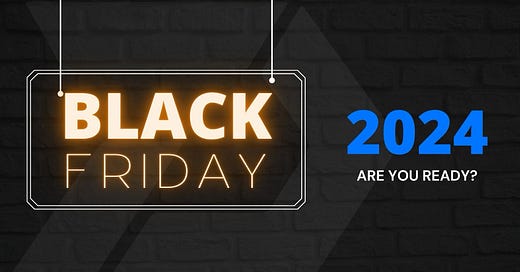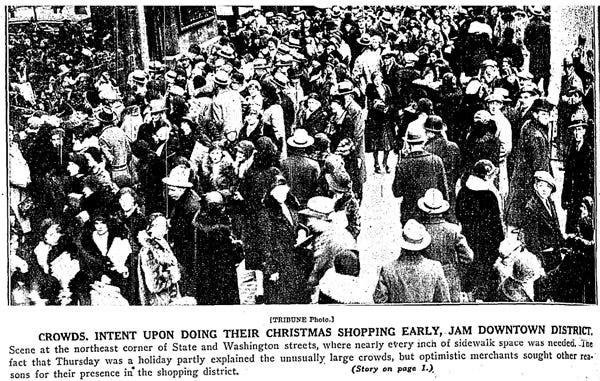Ask most Americans about Black Friday and they will tell you it’s all about sales. Advertising hits new heights and buying frenzy are supposed to bring retailers into the black by the end of the year. The day after Thanksgiving has become an international phenomenon. And the sales start earlier every year.
But for historians, the real Black Friday has nothing to do with sales. And it is tied to a date, not to a holiday. Yes, it was a frenzy, but not the kind we associate the words with today.
The most commonly repeated story behind the Thanksgiving shopping-related Black Friday tradition links it to retailers. As the story goes, after an entire year of operating at a loss (“in the red”) stores would supposedly earn a profit (“went into the black”) on the day after Thanksgiving, because holiday shoppers blew so much money on discounted merchandise. Though it’s true that retail companies used to record losses in red and profits in black when doing their accounting, this version of Black Friday’s origin is the officially sanctioned—but inaccurate—story behind the tradition.
The first use of the term Black Friday was the crash of the American gold market on September 24, 1869. In the meantime, other explanations have surfaced. While some people protest Black Friday for encouraging overspending, one untrue explanations gained traction.
In recent years, another myth has surfaced that gives a particularly ugly twist to the tradition, claiming that back in the 1800s Southern plantation owners could buy enslaved workers at a discount on the day after Thanksgiving. Though this version of Black Friday’s roots has understandably led some to call for a boycott of the retail holiday, it has no basis in fact.
But the “real” Black Friday did have to do with shopping and with the crowds in Philadelphia, Pennsylvania, the day after Thanksgiving.
Not only were Philly cops not able to take the day off, but they had to work extra-long shifts dealing with the additional crowds and traffic. Shoplifters also took advantage of the bedlam in stores and made off with merchandise, adding to the law enforcement headache.
Other big cities had the same problems. In Chicago, up to two million people would be shopping on State Street the day after Thanksgiving.
So the next time you see the words Black Friday, remember that the story is more about overworked law enforcement and less about retailers profits.







I had no idea of this history. Thank you. I try to stay away from the stores on this day.
I do take advantage of online sales but I won't go near the shopping centers or clogged highways. I have enough stuff.